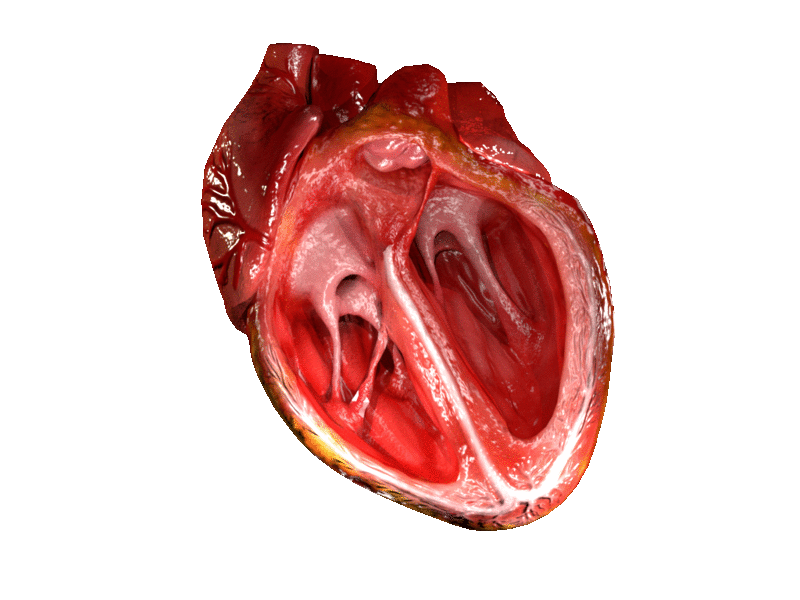Heart failure with preserved ejection fraction

Editor-In-Chief: Prab R Tumpati, MD
Obesity, Sleep & Internal medicine
Founder, WikiMD Wellnesspedia &
W8MD's medical weight loss NYC, sleep center NYC
Philadelphia medical weight loss and Philadelphia sleep clinics
| Heart failure with preserved ejection fraction | |
|---|---|

| |
| Synonyms | HFpEF, diastolic heart failure |
| Pronounce | N/A |
| Specialty | Cardiology |
| Symptoms | Dyspnea, fatigue, edema |
| Complications | N/A |
| Onset | Typically in older adults |
| Duration | Chronic |
| Types | N/A |
| Causes | Hypertension, coronary artery disease, diabetes mellitus, obesity |
| Risks | Age, hypertension, obesity, diabetes mellitus, chronic kidney disease |
| Diagnosis | Echocardiography, BNP levels, clinical evaluation |
| Differential diagnosis | Heart failure with reduced ejection fraction, pulmonary hypertension, valvular heart disease |
| Prevention | N/A |
| Treatment | Lifestyle modification, diuretics, ACE inhibitors, beta blockers |
| Medication | N/A |
| Prognosis | Variable, often chronic and progressive |
| Frequency | Increasing with aging population |
| Deaths | N/A |


Heart failure with preserved ejection fraction (HFpEF) is a type of heart failure in which the heart's lower chambers, the ventricles, are unable to fill properly with blood during the diastolic phase (when the heart is relaxed). Despite this, the ejection fraction, or the percentage of blood that is pumped out of the ventricles with each heartbeat, remains within the normal range. This condition is also known as diastolic heart failure.
Symptoms[edit]
The symptoms of HFpEF can vary greatly from person to person, but they often include shortness of breath, fatigue, and edema (swelling) in the legs and ankles. These symptoms are often exacerbated by physical activity.
Causes[edit]
The exact cause of HFpEF is not fully understood, but it is often associated with conditions that increase stiffness of the heart muscle, such as hypertension, obesity, and diabetes. Aging is also a risk factor, as the heart muscle naturally becomes stiffer and less flexible over time.
Diagnosis[edit]
Diagnosis of HFpEF can be challenging, as the ejection fraction is normal. However, other tests, such as an echocardiogram, can reveal abnormalities in the way the heart fills with blood. Blood tests, chest X-rays, and cardiac stress tests may also be used.
Treatment[edit]
Treatment for HFpEF focuses on managing symptoms and slowing the progression of the disease. This may include lifestyle changes, such as diet and exercise, and medications to control blood pressure and heart rate.
Prognosis[edit]
The prognosis for individuals with HFpEF varies widely and depends on many factors, including the severity of symptoms and the presence of other health conditions. However, with appropriate treatment and management, many people with HFpEF can lead active and fulfilling lives.
See also[edit]
Ad. Transform your life with W8MD's Budget GLP-1 injections from $49.99


W8MD offers a medical weight loss program to lose weight in Philadelphia. Our physician-supervised medical weight loss provides:
- Weight loss injections in NYC (generic and brand names):
- Zepbound / Mounjaro, Wegovy / Ozempic, Saxenda
- Most insurances accepted or discounted self-pay rates. We will obtain insurance prior authorizations if needed.
- Generic GLP1 weight loss injections from $49.99 for the starting dose of Semaglutide and $65.00 for Tirzepatide.
- Also offer prescription weight loss medications including Phentermine, Qsymia, Diethylpropion, Contrave etc.
NYC weight loss doctor appointmentsNYC weight loss doctor appointments
Start your NYC weight loss journey today at our NYC medical weight loss and Philadelphia medical weight loss clinics.
- Call 718-946-5500 to lose weight in NYC or for medical weight loss in Philadelphia 215-676-2334.
- Tags:NYC medical weight loss, Philadelphia lose weight Zepbound NYC, Budget GLP1 weight loss injections, Wegovy Philadelphia, Wegovy NYC, Philadelphia medical weight loss, Brookly weight loss and Wegovy NYC
|
WikiMD's Wellness Encyclopedia |
| Let Food Be Thy Medicine Medicine Thy Food - Hippocrates |
Medical Disclaimer: WikiMD is not a substitute for professional medical advice. The information on WikiMD is provided as an information resource only, may be incorrect, outdated or misleading, and is not to be used or relied on for any diagnostic or treatment purposes. Please consult your health care provider before making any healthcare decisions or for guidance about a specific medical condition. WikiMD expressly disclaims responsibility, and shall have no liability, for any damages, loss, injury, or liability whatsoever suffered as a result of your reliance on the information contained in this site. By visiting this site you agree to the foregoing terms and conditions, which may from time to time be changed or supplemented by WikiMD. If you do not agree to the foregoing terms and conditions, you should not enter or use this site. See full disclaimer.
Credits:Most images are courtesy of Wikimedia commons, and templates, categories Wikipedia, licensed under CC BY SA or similar.
Translate this page: - East Asian
中文,
日本,
한국어,
South Asian
हिन्दी,
தமிழ்,
తెలుగు,
Urdu,
ಕನ್ನಡ,
Southeast Asian
Indonesian,
Vietnamese,
Thai,
မြန်မာဘာသာ,
বাংলা
European
español,
Deutsch,
français,
Greek,
português do Brasil,
polski,
română,
русский,
Nederlands,
norsk,
svenska,
suomi,
Italian
Middle Eastern & African
عربى,
Turkish,
Persian,
Hebrew,
Afrikaans,
isiZulu,
Kiswahili,
Other
Bulgarian,
Hungarian,
Czech,
Swedish,
മലയാളം,
मराठी,
ਪੰਜਾਬੀ,
ગુજરાતી,
Portuguese,
Ukrainian


